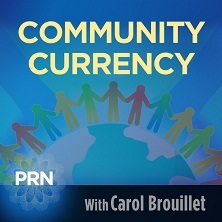Ordinary People Doing the Extraordinary with Dwayne Hunn

Listen Thursday, November 11, 2010 from 2-3 pm on the Progressive Radio Network to hear the story behind a book listed by Ralph Nader as one of the top ten books to read! Ordinary People Doing the Extraordinary: The Story of Ed and Joyce Koupal and the Initiative Process was authored by Dwayne Hunn, PhD., MA, Executive Director of Peoples Lobby, about his mentors and founders of People's Lobby (PLI).
In the ‘70’s, PLI used the initiative process to solve problems, qualifying two clean environment initiatives and then passing the Political Reform Act with 70% of the vote to establish California's Fair Political Practices Commission. PLI also directed the 18 states Western Bloc Safe Energy Campaigns and organized three days of Senate Judiciary Committee Hearings on establishing a National Initiative Process.
Dwayne was a Peace Corps volunteer in the slums of Mumbai, India, on the startup team of the California Conservation Corps, selected to Who's Who in California, a partner on the Recycled Building Company, one of six founding members of the SunTrain Inc., and has worked on over four Habitat building projects. He is currently working on legislation creating an American World Service Corps and a proposal to Return to Fair Tax Brackets, which address some of the major problems we face today. His work is dependent upon public support and involvement- you can help by signing the petitions on the website for policy changing legislation.
The show's host, Carol Brouillet, became particularly interested in the initiative process, when she learned that all the major gains of the Populists followed the success of getting the initiative process started in several states in the 1800's. The challenges of the Populist Era confronting corporate power, corruption, a hostile media parallel the current struggle against the enthronement of corporate power. (She wrote and spoke about the populists in a presentation of Strategy for the Monetary Reform Movement in Chicago last October.
Dwayne Hunn has also experienced how the corporations learned from the Koupal's success to further their own interests and push for initiatives that enhance their power at public expense.
The 2010 Forum in San Francisco on Modren Direct Democracy stated:
"Modern Direct democracy is one important way to bring the people into representative government at all levels -- local, state, national, and transnational. It is a process that works best in places where freedom and human rights are protected. To improve direct democracy, we must continue to learn from each other, bridging boundaries of nationality, ideology and party.
Having gathered here in San Francisco, we also must note that California's initiative process needs greater attention and perhaps improvement, because the reputation of the state's direct democracy is negatively and unfairly affecting perceptions of direct democracy around the world.
We agree that three values must be applied to direct democracy everywhere: transparency, open access, and deliberation.
Transparency: At every stage of each direct democratic action, and in every aspect of the initiative and referendum process, citizens have a right to know as much as possible about the people and money behind each measure, so long as individuals are protected against coercion and retribution for their votes and for their signatures.
Open access. Access to the process, especially the qualification of measures for ballots, should be based on measures of substantial popular support - and should not be dependent on money or on the sanction or approval of public officials or political parties or interest groups. Technology and other innovations should be fully incorporated into the process consistent with the values of expanding access and ensuring transparency.
Deliberation. A deliberative process that is driven by and managed by citizens themselves should be part of every direct democracy. We believe that the most important factors in deliberation are the ability to hear multiple views from all sides - and the time to consider each direct democratic measure fully.
We cannot stress enough the importance of sufficient time to the health of direct democracy. We are concerned that many direct democratic systems, particularly those in the United States, fail to provide the time necessary for thorough deliberation and open access.
This show will be recorded and archived on the Progressive Radio Network.
Get Involved
If you'd like to help with maintaining or developing the website, contact us.
Publish
Publish your stories and upcoming events on Indybay.



